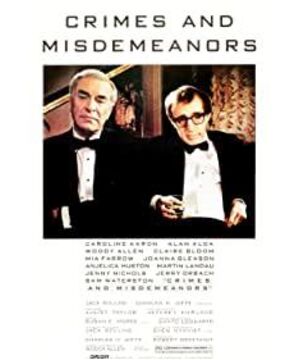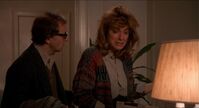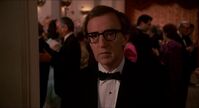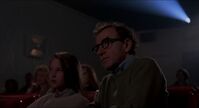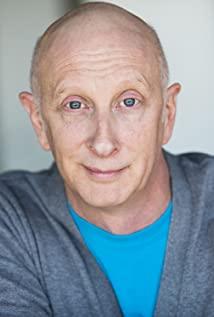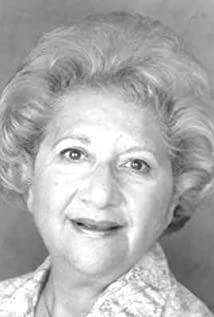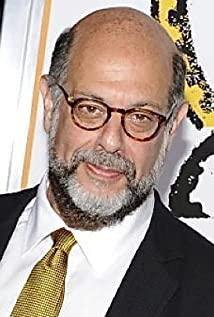I have watched a lot of Woody Allen recently, and I can clearly see what he wants to say in this movie. Compared with the "Manhattan Murder Mystery", which also contained murderous elements in the same era, the meaning of preaching and philosophical is ready to come out.
The film uses a two-line narrative structure, but not a cross-narrative of the same time and space, but an interspersed deductive technique. The way the two stories intersect is also very interesting: the development of the murder story is placed on Woody Allen's intermittent In several movie viewings, until the end, the male protagonists of the two stories met in a wine game and complained to each other.
Unreligious Woody Allen, like Bergman, has explored the question of "God is there or not", which is probably another tribute. The doctor does not believe in religion, so after committing the crime, he only has guilt in his heart, and there is no worry of retribution. But in the doctor’s fantasy, the father as a believer is a loyal supporter of evil and retribution. In the same conversation with a religious colleague, the colleague said, “If you are like you, there is no moral code brought by religion in your heart. I said I can't live." Combined with the lecture of Professor Levi in the film, it seems that a hint of the director's thoughts can be glimpsed-in a materialistic, alienated, and absurd world, religion seems to give us a trace of guidelines, so that we will not be desperate for our own interests. But in the end, as an atheist doctor, over time, he forgot the guilt in his heart and lived a happy and perfect life. So whether God is there or not, and how much does religion affect people? The director has put a big question here. There is another wonderful scene in this story. When the doctor goes to the apartment of the deceased lover, the camera shakes down from the doctor’s eyes. The purpose of the shaking is not the vulgar trembling hand, but to the deceased’s eye. She shook the doctor's eyes again. Eyes are a very important element of this story. He is an ophthalmologist, and the deceased feels that there is something wrong with his eyes. He said to Jack, I think his eyes are black holes.
In the last segment of the film, Woody Allen emphasized the importance of choice-"We have to constantly face painful and moral choices throughout our lives. Some choices are of great significance, and most of them are trivial. Little things, but the choices we make determine who we are. We are actually the sum of the choices we make. The world is unpredictable, and there are many uneven things in life. When God created things, it seems that Without considering the human happiness, we can only give meaning to this ruthless universe only by our own ability to love. However, most people have the ability to continue living, and even find happiness in small things. For example, finding happiness from family, work, and hope for the future generation, hoping that they can understand life better." There is a taste of existentialism, but it seems to be different in nature. Existentialism emphasizes that you can control your own destiny through choice. Man can conquer the sky, but in Woody Allen's case, it seems to be fatalistic.
Oh, by the way, before preaching, Woody Allen said that life is a tragedy, the doctor replied, yes, if you want to always watch comedy, you should go to Hollywood. Still don't forget to make a mockery.
View more about Crimes and Misdemeanors reviews


